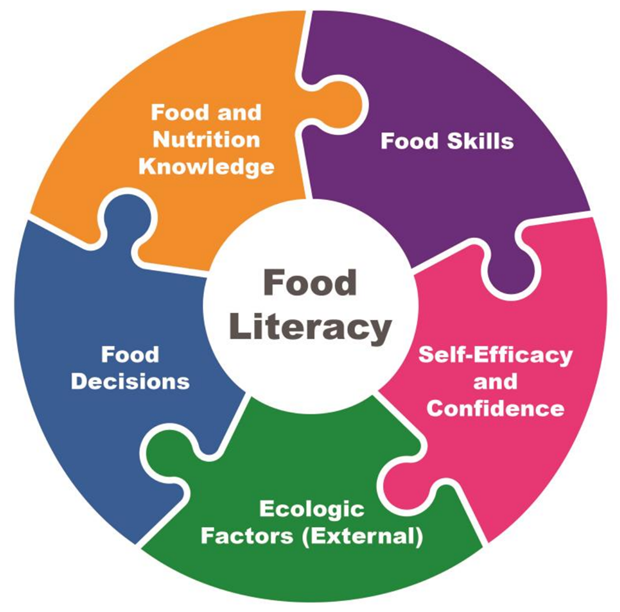Ontario Food Collaborative Webinar with Fred Laforge and Dr. Pamela Farrell
The Ontario Food Collaborative‘s recent webinar brought together two inspiring leaders in the field of food justice, Fred Laforge, founder of The Farmers’ Truck, and Dr. Pamela Farrell, founder and Executive Director of GROW Community Food Literacy Centre. While completing her doctorate in literacy, Dr. Farrell came across the term “food literacy” and was intrigued by its implications for community health and empowerment. Food Literacy is something the OFC has focused on since our beginnings. For the past 10 years, we’ve been educating our audience on its meaning and how to build knowledge around food. Together, Fred and Dr. Farrell shared first-hand knowledge into how mobile markets are not only delivering food to vulnerable communities, but they’re also creating lasting change.
The Farmers’ Truck Model
Fred opened the session by sharing the inspiration behind The Farmers’ Truck, a mobile market designed to deliver fresh, affordable produce to underserved communities. Drawing on his farming background and deep commitment to food justice, Fred challenged the traditional food charity model that often treats people as passive recipients, emphasizing the need for food programs that promote dignity and choice. The Farmers’ Truck empowers individuals by allowing them to purchase their own food, turning them into active participants in their own food security. His scalable solution helps organizations across communities provide access to fresh food in a way that respects and uplifts the people they serve.

Launch photo with one of the custom Farmers’ Truck units
GROW-on-the-Go: Canada’s First Electric Market
Dr. Farrell entered the conversation to discuss GROW-on-the-Go, Canada’s first all-electric mobile food market. Her inspiration for the project came from growing up in Switzerland, where a similar grocery bus served rural communities. After years of community engagement, planning, and securing funding, GROW launched a zero-emissions truck stocked fresh, local produce, aimed at increasing access to healthy food in Niagara’s most underserved areas.
Core Values of GROW
What sets GROW-on-the-Go apart is its deep commitment to community collaboration and sustainability. Dr. Farrell explained that the project is volunteer-powered and heavily reliant on local partnerships. They work with Niagara Public Health to target food insecure neighbourhoods and provide a service that meets the specific needs of each community whether it’s at local schools, housing complexes, or community centres. A key part of their model involves using an electric bus to travel to the Toronto Food Terminal, where they source fresh, affordable produce. This direct procurement approach helps ensure quality while reducing costs. One alarming fact Dr. Farrell highlighted is that only 25% of people who need food banks use them–further underscoring the importance of bringing healthy food directly to where people live, removing the stigma and barriers often associated with traditional food charity models.

GROW-on-the-Go mobile truck
A significant feature of GROW’s approach is its emphasis on zero waste. As Dr. Farrell shared, they are very strategic in how they purchase food. “We’re careful about what we buy,” she said, adding that any produce that doesn’t sell fast enough is either repurposed into meals, preserved, or frozen. Their community chef, Laura, plays an essential role in this process, transforming surplus vegetables into delicious soups, stews, and preserves that help minimize food waste while feeding the community.
The discussion also emphasized the importance of food justice as part of a larger conversation on systemic change. Dr. Farrell stressed that food insecurity cannot be solved by charity alone. While mobile markets like GROW-on-the-Go are an important part of the solution, she highlighted that the real change lies in ensuring that everyone has access to livable incomes, affordable housing, and dignified food access. Fred echoed this point, calling for a shift from emergency food systems to long-term, sustainable solutions. Both speakers agreed that food sovereignty, the right for communities to have control over their own food systems, should be at the heart of the conversation about food security.

Food Literacy Framework from the Ontario Dietitians in Public Health
Toward Food Justice
A key takeaway from the webinar was the idea of community-driven solutions. Dr. Farrell and Fred emphasized that mobile markets succeed because they are shaped by the needs and desires of the people they serve. These programs are not imposed from the outside; they are born from the community, for the community.
Throughout the discussion, it became clear that collaboration is essential to making mobile markets work. Fred shared that various organizations including schools, health units, and non-profits are using mobile markets in creative ways to serve their communities. “It’s about working together to find solutions,” he said, pointing out how different sectors can come together to address food insecurity.
Finally, Dr. Farrell’s message was hopeful: “We can make food justice a reality.” She believes that, through continued community collaboration, sustainable models, and a focus on dignity and choice, mobile markets can become a tool for true change.
If you missed the webinar or want to explore more about food justice and mobile markets, we encourage you to watch a recording of the Ontario Food Collaborative webinar, and visit the websites of The Farmers’ Truck and GROW Community Food Literacy Centre.
